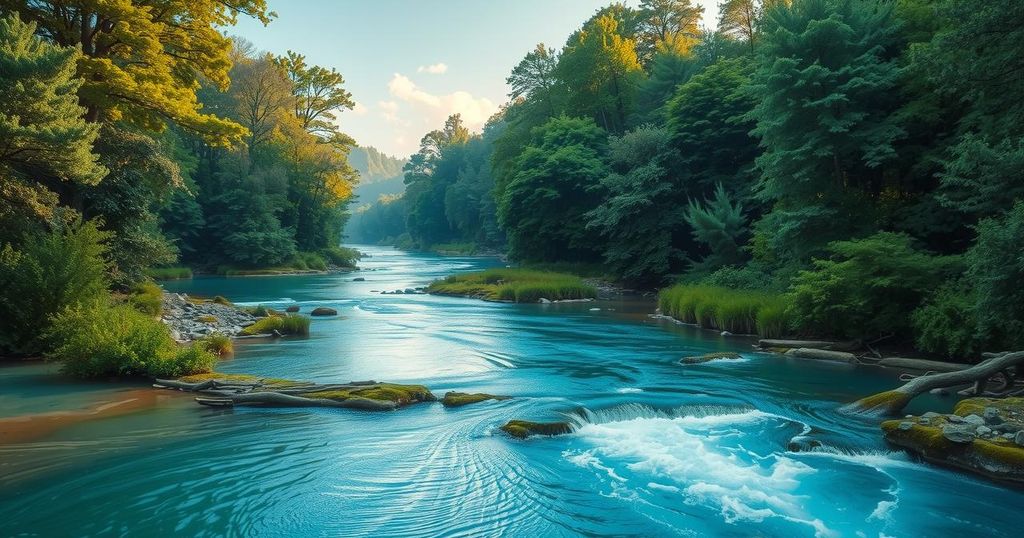World news
AMAZON, ASIA, BELEM, BRAZIL, CLIMATE CHANGE, COM, DEFORESTATION, DENMARK, DISASTER MANAGEMENT, DOMINICAN REPUBLIC, EUROPE, INDIA, JULIAN, JULIANO SCHIRMBECK, NATURAL DISASTERS, NDTV, NDTV. COM, NORTH AMERICA, PANTANAL, PARA, RHODE ISLAND, RIO DE JANEIRO, SOUTH AMERICA, US, WATER MANAGEMENT
Sofia Rodriguez
0 Comments
Brazil Faces Water Crisis Amid Climate Change and Land Conversion
A report by MapBiomas indicates that Brazil is losing natural surface water due to climate change and land conversion, with a loss of 400,000 hectares in the last year alone. Since 1985, approximately 2.4 million hectares have been lost. The Amazon and Pantanal regions are notably affected, prompting calls for better water management strategies as Brazil prepares to host COP30 in November.
Brazil, holding 12 percent of the world’s freshwater resources, is facing a significant decline in its natural surface water due to climate change and the conversion of forests into farmland. The MapBiomas monitoring platform reported a loss of approximately 400,000 hectares of aquatic surface between 2023 and the previous year, a reduction comparable to the size of Rhode Island. Over the last 16 years, only 2022 saw an increase in surface water, with a total decrease of about 2.4 million hectares since 1985 attributed to drought conditions, urban development, and excessive aquifer extraction.
Juliano Schirmbeck, coordinator of the MapBiomas Agua report, remarked that “the dynamics of land occupation and use, along with extreme climate events caused by global warming, are making Brazil drier.” He emphasized the urgency for adaptive water management strategies and public policies aimed at reversing this concerning trend. This report precedes Brazil’s hosting of the COP30 UN climate conference in November in Belém, located in the Amazonian state of Pará.
The Amazon, which contains almost two-thirds of Brazil’s surface water and is essential in absorbing carbon dioxide, witnessed a drastic reduction of 4.5 million hectares of surface water in 2023 compared to 2022. This loss signifies an area equivalent to the entire country of Denmark. Moreover, the Pantanal wetlands, severely affected last year by drought and wildfires, reported water levels about 61 percent below the average since 1985. While artificial water bodies, such as reservoirs and dams, have increased by 54 percent since 1985, they have failed to offset the declines in natural freshwater resources, according to the report.
Brazil is experiencing a critical decline in its surface water resources primarily due to climate change and land conversion. The findings highlight an urgent need for improved water management policies aimed at restoring and protecting natural freshwater sources. With significant damages to ecosystems like the Amazon and Pantanal, the focus on adaptive strategies with the upcoming COP30 conference marks a pivotal moment for Brazil in addressing these challenges effectively.
Original Source: www.ndtv.com




Post Comment